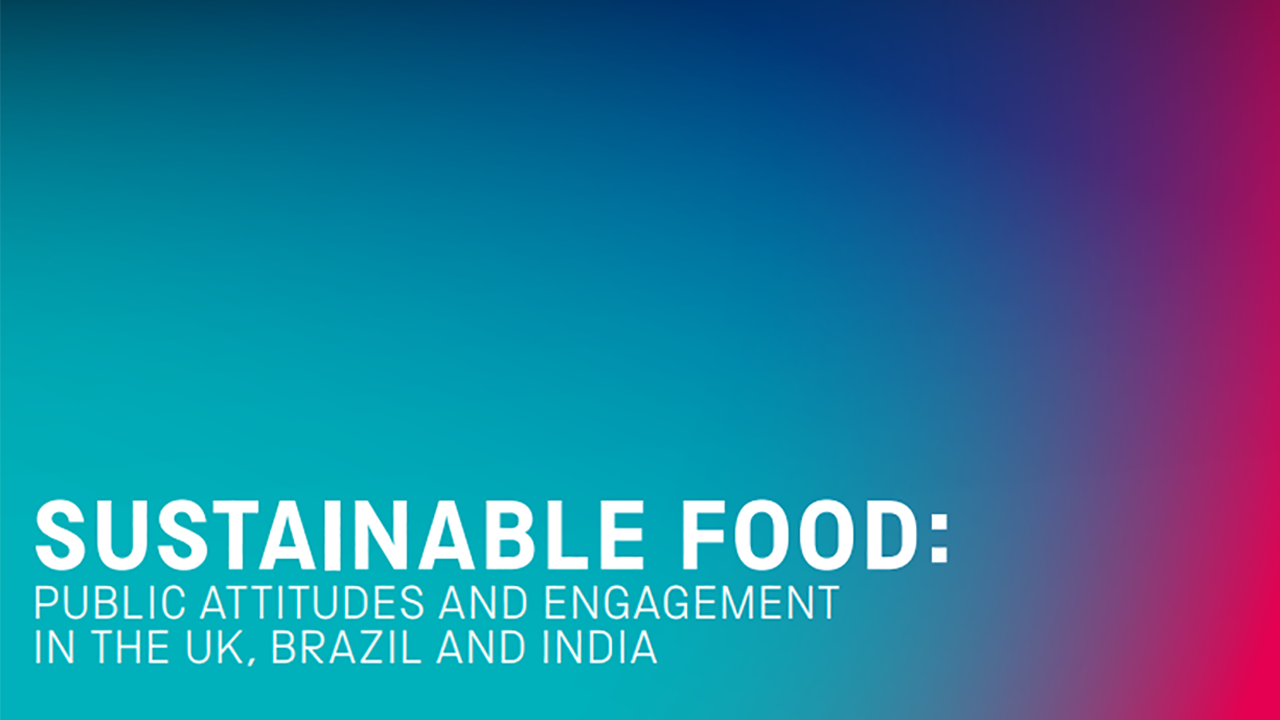Museum of Tomorrow participates in a public perception research on food in Brazil, India and the United Kingdom

Listening to more than 1,600 people in the three countries, the study was developed by the Science Museum Group with the support of the National Council of Science Museums of India and by British institutions.
By Davi Bonela and Felipe Floriano*
Food is a global challenge, from production to consumption. In Brazil, India and the United Kingdom, people feel powerless to face this challenge, which intensifies environmental and social issues. Therefore, they hope that museums will help them to engage in the search for solutions that they can put into practice in their own lives as consumers. This is what the research 'Sustainable food: public attitudes and engagement in the UK, Brazil and India' reveals. Conducted by the Science Museum Group in collaboration with the Museum of Tomorrow, the National Council of Science Museums of India, People's Palace Project and Flow Associates, the study polled adults, families, schools and professionals to discover their knowledge and opinions on the challenges of food sustainability. With the participation of more than 1,600 people in the three countries, it was still possible to explore how museums can better communicate with them through their exhibitions and other activities.
"Food sustainability is a global challenge with impacts on the environment - associated, for instance, with changes in climate, biodiversity and land use - and also on society - affecting, for instance, health and economy. That is why it is essential that museums around the world unite their efforts to know the opinion of their audiences on this topic and develop the best practices to engage them in the search for solutions”, says Ricardo Piquet, President of IDG - Institute for Development and Management, the managing institution of the Museum of Tomorrow. “The long-standing partnership with the Science Museum Group enables international studies like the one that has just been released, which reveal the similarities and differences in the way that the audiences in Brazil, the United Kingdom and India see these themes”, he concludes.
The study revealed that respondents in the three countries not only share a high level of interest in food sustainability, but also in the changes needed to address the challenges that are related to food production, distribution and consumption. This is because the less they know about it, the less motivated they feel to change their own eating habits. Brazilians, for example, are more aware of the impacts of the food system on ecosystems and the climate than the British and Indians. However, in a country where food insecurity has intensified with Covid-19, lack of time, fast-paced lifestyles, food prices and access to information are the main barriers to change, particularly for low-income families, according to the study.
About the research
‘Sustainable food: public attitudes and engagement in the UK, Brazil and India' was developed by the Science Museum Group, supported by Lloyd's Register Foundation, with the participation of Flow Associates, People's Palace Projects of Brazil, the National Council of Science Museums, in India, and the Museum of Tomorrow, in Brazil.
A total of 1,604 people participated in the survey, 300 of which through in-depth interviews and focus groups. In addition, light-touch research was sent to the social networks of the three partner museums, including the National Council of Science Museums in India and the Museum of Tomorrow in Brazil.
By Davi Bonela, Scientific Development Coordinator, and Felipe Floriano, Scientific Development Analyst at Museum of Tomorrow.
Museum of Tomorrow is an Applied Sciences museum which explores the opportunities and challenges which humanity will be forced to tackle in the coming decades from the perspective of sustainability and conviviality. Launched December 2015 by Rio de Janeiro City Hall, Museum of Tomorrow is a Culture asset from Rio's Secretary of Culture currently managed by Instituto de Desenvolvimento e Gestão (IDG). Example of a well-succeeded partnership between public power and private initiative, it has already received over three million visitors since opening. With Santander Bank as a Master Sponsor and a wide network of partner sponsors as Shell, IBM, IRB-Brasil RE, Engie, Grupo Globo and Instituto CCR, the museum was originally conceived by Roberto Marinho Foundation.